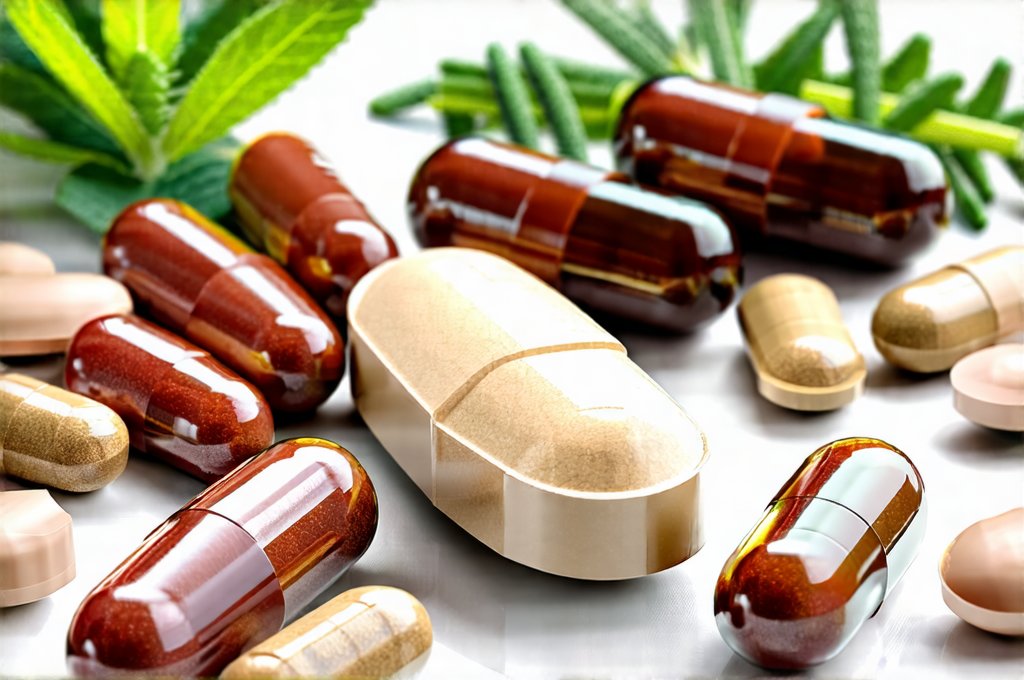Acid reflux, also known as heartburn, is a common digestive issue affecting millions worldwide. It occurs when stomach acid flows back up into the esophagus, leading to uncomfortable symptoms like burning sensations in the chest, regurgitation, and even difficulty swallowing. While dietary choices often take the blame, many individuals are unaware that certain herbal supplements – seemingly benign health aids – can also contribute to or exacerbate these issues. Understanding which supplements may trigger reflux is crucial for those managing this condition, allowing them to make informed decisions about their wellness routines. This article will delve into specific herbs known to potentially worsen acid reflux, exploring the mechanisms behind these effects and offering guidance on mindful supplementation.
The complexity of acid reflux means there’s no one-size-fits-all answer regarding supplements. Individual sensitivity plays a huge role; what triggers symptoms in one person might not affect another. However, recognizing the potential for certain herbs to relax the lower esophageal sphincter (LES) – the muscle that prevents stomach acid from flowing back up – or to increase stomach acid production is key. It’s vital to remember that herbal supplements are not always rigorously tested and can interact with medications. Therefore, consulting a healthcare professional before adding any new supplement to your regimen is paramount, especially if you already experience reflux symptoms. We will explore common culprits and provide insights into how to navigate the world of herbal remedies safely.
Herbal Supplements & The Lower Esophageal Sphincter
Several herbal supplements are associated with an increased risk of acid reflux due to their impact on the LES. This valve is essential for maintaining digestive health, and when it weakens or relaxes inappropriately, acid can easily escape into the esophagus. Peppermint, a widely used remedy for digestive upset, is a prime example. While it can soothe stomach muscles and alleviate nausea, its relaxing effect extends to the LES. Studies have shown peppermint oil can significantly decrease LES pressure, making reflux more likely. This doesn’t mean everyone should avoid peppermint; however, those prone to reflux might experience worsened symptoms after consuming peppermint tea or supplements.
Another herb of concern is chamomile, often touted for its calming properties. Similar to peppermint, chamomile can relax the muscles in the digestive tract – including the LES. While generally considered mild, frequent consumption of chamomile tea or concentrated chamomile supplements could potentially contribute to reflux episodes. This isn’t necessarily a reason to avoid it altogether, but mindful moderation is advised, especially if you are sensitive to acid reflux. Furthermore, ginger, although often recommended for nausea and digestion, can also present issues for some individuals. While less commonly associated with LES relaxation than peppermint or chamomile, ginger can stimulate gastric emptying, which, in certain cases, might exacerbate reflux by increasing pressure in the stomach.
It’s important to understand that the effects of these herbs aren’t always straightforward. Factors like dosage, individual sensitivity, and the specific form of supplement (tea, capsule, extract) all play a role. Some individuals may tolerate small amounts without issue, while others might experience significant symptoms even with minimal consumption. The key takeaway is being aware of these potential risks and monitoring your body’s response when introducing herbal supplements into your routine. You can learn more about identifying trigger foods for acid reflux to further understand sensitivities.
Herbs That May Increase Stomach Acid Production
While LES relaxation is a major contributor to acid reflux, increased stomach acid production can also play a role. Some herbs are known to stimulate gastric secretions, potentially overwhelming the protective mechanisms of the esophagus and leading to heartburn. Licorice, for instance, has traditionally been used for digestive issues, but it contains compounds that can increase acid secretion. While deglycyrrhizinated licorice (DGL) – a form with reduced glycyrrhizin content – is often recommended as a safer alternative, even DGL may not be suitable for everyone prone to reflux.
Garlic, frequently lauded for its immune-boosting properties, can also contribute to increased stomach acidity in some individuals. While the evidence isn’t conclusive, anecdotal reports and some preliminary research suggest garlic might stimulate acid production, potentially exacerbating reflux symptoms. This is particularly relevant for those who are sensitive to strong flavors or have a history of gastritis. Similarly, turmeric, a popular spice known for its anti-inflammatory benefits, can sometimes increase stomach acid. While generally well-tolerated, high doses of turmeric – especially in supplement form – could potentially lead to discomfort for individuals with pre-existing reflux issues. If you’re looking for dietary support, consider a GERD diet focused on reducing acid production.
It’s worth noting that the relationship between herbal supplements and stomach acid production isn’t always direct or predictable. Some herbs might stimulate acid secretion indirectly by affecting digestive processes. The overall impact will vary depending on individual factors and the specific herb in question. As before, paying attention to your body’s response is crucial when incorporating these supplements into your wellness plan.
Identifying Your Triggers & Supplementation Strategies
Determining which herbal supplements are triggering your acid reflux can be a process of elimination. Keeping a detailed symptom journal can be incredibly helpful. Record what you consume – including all herbal supplements – and note any associated symptoms, their severity, and the timing of occurrence. This will help identify potential triggers with greater accuracy. – Start by eliminating suspected herbs one at a time to see if symptoms improve. – Reintroduce them gradually to confirm whether they are indeed contributing to your reflux. – Consider switching to alternative forms of supplementation (e.g., using fresh ginger in cooking instead of supplements).
It’s also important to consider the timing of supplement intake. Taking supplements with meals may help buffer their effects and reduce the likelihood of triggering reflux, while taking them on an empty stomach might increase the risk. Moreover, be mindful of interactions between herbal supplements and any medications you are currently taking. Some herbs can interfere with drug absorption or enhance their side effects. A thorough discussion with your healthcare provider is essential to ensure safe and effective supplementation. If you suspect food sensitivity may be a factor, consulting a specialist can provide valuable insights.
The Role of Lifestyle & Dietary Modifications
Herbal supplements are only one piece of the acid reflux puzzle. Lifestyle and dietary changes often play a more significant role in managing symptoms. – Avoid trigger foods: Common culprits include fatty foods, spicy meals, chocolate, caffeine, alcohol, and citrus fruits. – Eat smaller, more frequent meals to reduce stomach pressure. – Elevate the head of your bed by 6-8 inches to prevent acid from flowing back up into the esophagus during sleep. – Maintain a healthy weight, as excess weight can increase abdominal pressure.
Managing stress is also crucial, as stress can worsen digestive symptoms. Techniques like yoga, meditation, and deep breathing exercises can help reduce stress levels and potentially alleviate reflux. Prioritizing these lifestyle adjustments alongside mindful supplementation practices will provide the most comprehensive approach to managing acid reflux and improving your overall well-being. Remember that prevention is often better than cure, and adopting a proactive approach to digestive health can significantly reduce the frequency and severity of reflux episodes. Herbal remedies for acid reflux might offer some relief but should be approached cautiously.
Consulting with Healthcare Professionals
Ultimately, self-treating acid reflux with herbal supplements can be risky. Always consult with a healthcare professional – such as your doctor or a registered dietitian – before adding any new supplement to your regimen. They can assess your individual health status, identify potential interactions with medications, and provide personalized recommendations based on your specific needs. Don’t hesitate to seek medical attention if your reflux symptoms are severe or persistent, as they could indicate an underlying medical condition requiring treatment. A healthcare professional can help you determine the best course of action for managing your acid reflux effectively and safely. They may suggest further investigations such as endoscopy to rule out other conditions. Supporting your liver health with herbal supplements can also contribute to overall digestive wellbeing.


















